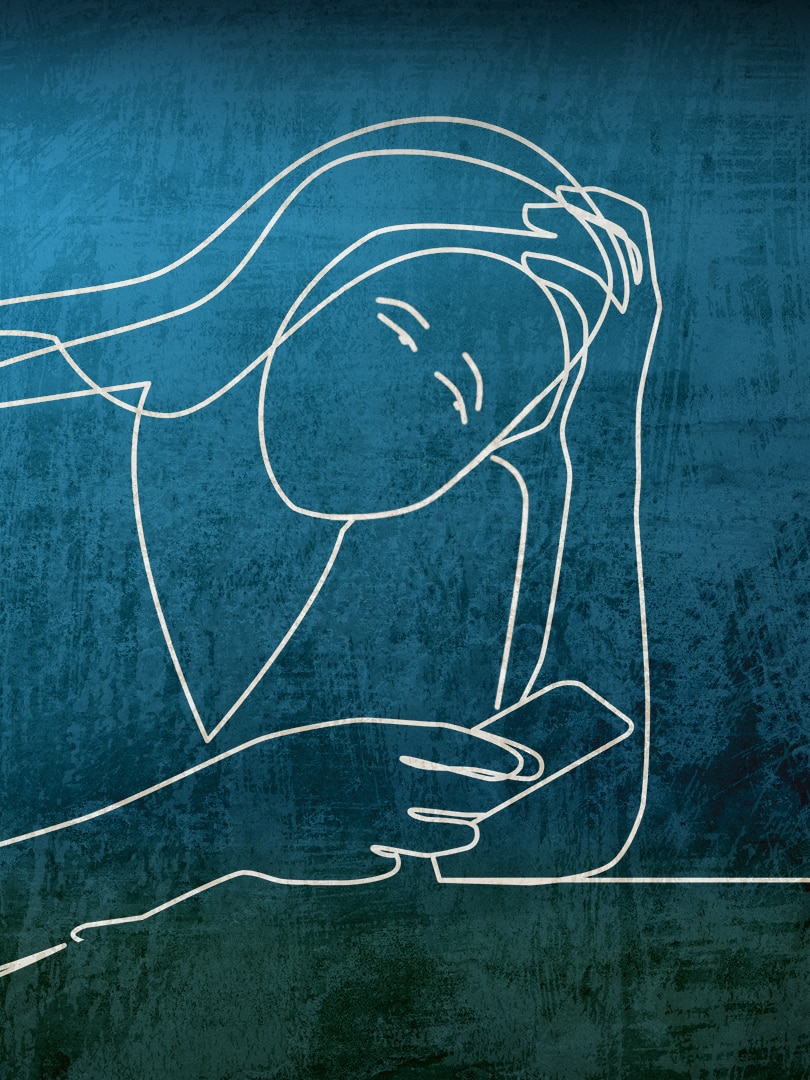Susan* tries to keep her childhood memories locked away.
The Queensland woman said she was sexually abused multiple times while living in an institution in the 1970s – an experience that left her feeling isolated, vulnerable and defenceless.
“As a child then, children were seen and not heard. You didn’t question decisions made by adults,” she said.
“There was a variety of tactics used to gain my trust, or put me in a position where I was particularly vulnerable.
“Coming out of that, I didn’t have a voice, I didn’t have the words, I couldn’t identify what I was going through.”
Decades later, Susan was driving when she received a cold call from a lawyer, asking about the abuse.
The lawyer told her that they got her name and phone number from one of their clients, who had grown up with Susan in care.
“[The lawyer] said, ‘Would you like to have a discussion about this potential claim that you may have?'” Susan said.
“I said, ‘OK, well I’m happy to have a chat’ … and then they made an arrangement to visit and discuss what they had to offer.”
Susan said she eventually agreed to make a compensation claim in 2017, but she was not prepared for how re-traumatising the process would be.
She said her lawyer acted against her wishes by making unsolicited contact with other members of her family to encourage them to also make compensation claims.
“I would not have willingly gone through this process without them [the lawyer] contacting me,” she said.
“I probably thought initially that I was prepared for it, but I was not prepared for the enormity of the impact.
“I’m not in a good place … I’m broken.”
‘The most unscrupulous of practices’
Susan said she believes she is a victim of claim farming.
According to independent legal service knowmore, the practice involves someone contacting a survivor of abuse or personal injury without their permission, to encourage them to make a claim for compensation.
Some people or businesses profit from selling survivors’ details to law firms, leaving them financially worse-off when those fees are added to their legal costs.
Law firms also profit from receiving a portion of the compensation payout as legal fees.
“Claim farming is the most unscrupulous of practices,” knowmore CEO Jackie Mead said.
“Suffering child sexual abuse is something that is unimaginable and for so many people, they put it to the backs of their minds and they try to get on with living their lives.
“To be in a situation then when somebody approaches you and tells you that they know, must be the most profound and most difficult of situations to find yourself in, particularly if you haven’t already told your story and your family and friends don’t even know.
“That’s where the trauma and re-traumatisation really comes from.”
Ms Mead said it was difficult to quantify how many Australians had experienced claim farming.
She said many survivors of child sexual abuse had told the Royal Commission into Institutional Responses to Child Sexual Abuse that they had experienced being cold called by law firms.
“They sit with another trauma, another pain and a financial loss as a result of this,” she said.
“How can we expect these people to ever heal when these things keep happening to them?”
SA considers new laws to stamp out practice
Currently, Queensland is the only jurisdiction in Australia with laws in place that protect victims of abuse or personal injury against claim farming.
The laws prohibit anyone from approaching another person without their consent and soliciting or inducing them to make a claim.
They also require law practices to certify that claims they are representing have not been “farmed”.
The South Australian government is now considering introducing similar laws that would see anyone who engages in claim farming in relation to a personal injury claim being fined up to $50,000.
Under the draft SA legislation, lawyers caught engaging in claim farming would also face potential disciplinary action.
SA Attorney-General Kyam Maher said the laws would effectively ban people from “profiteering off other people’s trauma”.
“What we’re proposing is legislation that would make it a criminal offence to pass on personal details for profit to a law firm for a personal injury claim,” he said.
“We’re out to consultation at the moment and we’re hoping to introduce legislation later this year,” he said.
“One instance of this happening, one instance where someone’s re-traumatised unnecessarily is one too many.”
Calls for national ban
Mr Maher said he would raise the issue of claim farming with other attorneys-general, to try to get claim farming banned throughout Australia.
Ms Mead said she welcomed that approach.
“It’s absolutely critical because what we know is that when one state shuts down, it moves to another state,” she said.
“This is a business model – it’s not just a couple of individuals doing bad stuff.
“They pick that business model up and they move it to somewhere else, and there’s nothing to stop them moving it towards other redress schemes or things that come in the future, whether that’s around veterans, or disability or forced adoption.”
Susan said without nation-wide protections, claim farmers could find loopholes.
“It should be a national legislation to ensure that victims are protected, and those loopholes are not exposed,” she said.
“If there are sanctions in one state and not others, then it’s going to be rife, and lawyers are going to be attempting to contact victims and re-traumatise them through this process all for financial benefit.”
*Name has been changed




